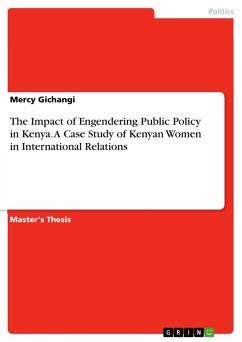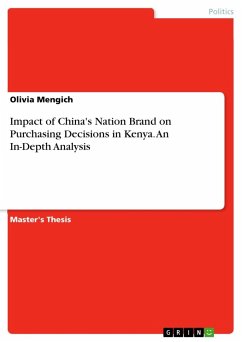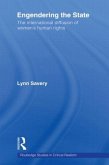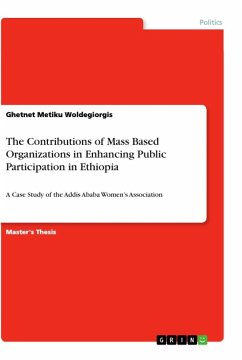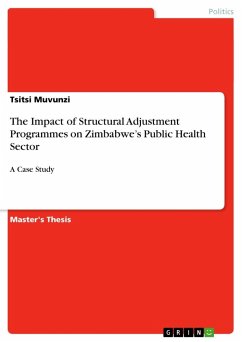Master's Thesis from the year 2009 in the subject Politics - Topic: International relations, grade: C, University of Nairobi (Institute of Diplomacy and International Studies), course: MA-International Studies, language: English, abstract: This study sought to examine the impact of engendering public policy in Kenya and studied Kenyan women in international relations in the eyes of those serving in international jurisdiction and those in the local sphere who have been able to influence international public policy. The Methodology of research was through both primary and secondary data analysis. Primary data was collected from interviews with women in public offices locally and internationally. The interviews were personal interviews in the form of Non-Scheduled Non-Structured interviews. The study relied heavily on secondary data which was collected from various sources such as library research, internet searches, past thesis, academic papers and dissertations, summary of journals, government documents. Political scientists around the world have been generally surprised by the recent surfacing of a viable advocacy movement stemming from the women¿s rights movement. The profession as a whole has found itself hard pressed to deal with the movement, either in analyzing the factors that provoked its emergence, or in explaining its implications for policy-making and the operation of public institutions in general. Such unpreparedness can be partially explained by the focus of public policy research, which has almost excluded women from its concern. The question then becomes ¿If your party nominated a woman for president, would you vote for her if she were to qualify for the job?¿ The equality of men in the matter of public and political rights is established by a large number of constitutions, codes and laws. Many nations have adopted the system of representative government at a later juncture, and whose customs and traditions maintain women in a subordinate position, have adopted the principle of the equality of both sexes; in the Far East and in Islamic countries, this improvement in legal status of women is proceeding, indeed at a revolutionary pace. In the Far East the public emancipation of women has encountered very strong opposition in circles attached to traditions, whether religious or not.
Hinweis: Dieser Artikel kann nur an eine deutsche Lieferadresse ausgeliefert werden.
Hinweis: Dieser Artikel kann nur an eine deutsche Lieferadresse ausgeliefert werden.

